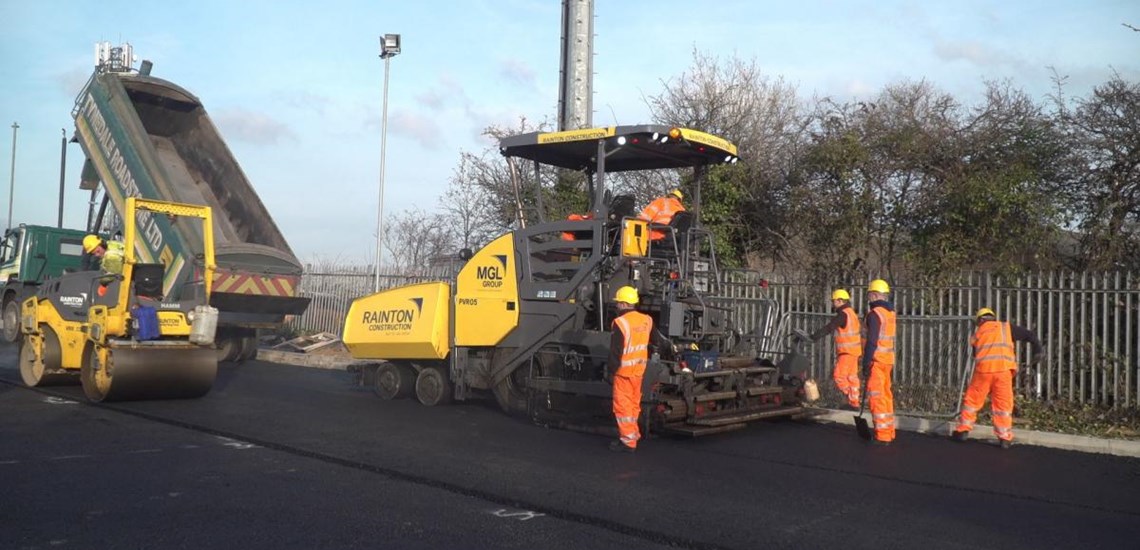After a long gestation period, rubberised asphalt is starting to gain a market in the UK with Durham County Council adding tyre rubber to its asphalt mix.
Durham County Council Adds Rubber to its Road Surfacing
Durham County Council and Rainton Construction are working to develop longer-lasting roads in the county.
The council has been using plastics in its bitumen mix for the past year but recently added rubber crumb to the recipe.
As well as diverting end-of-life materials from incineration, the combined properties from the rubber and plastics also enhance the performance of the road.
The materials provide a more water-resistant surface, which reduces the risks from the freeze-thaw actions which cause potholes. It is also less likely to crack, is more resistant to wear and tear, and is less likely to distort in hot weather.
The new road surface is expected to last longer, give better grip and be quieter; all attributes proven around the world in many countries already. Plus, of course, the material can be recycled again when the road is resurfaced in the future.
“The use of recycled tyre crumb is not a new innovation but mixing recycled plastics and the waste tyre crumb is, and we believe these are the first trials in the UK to use both waste plastic and waste rubber.” Said Mark Readman, the council’s highway services manager.
“From now on, a typical single truckload of surfacing material will include the equivalent of approximately 1,064 plastic bags and 51 car tyres. “Over the coming months, we will continue to work closely with Rainton Construction to develop new initiatives and look to find different ways to incorporate waste products to improve the surfacing mix.”
Dave Elliott, Rainton Construction’s managing director, said: “It is great for us as a business to have a partner like Durham County Council who is as passionate as we are about the re-use of end of life wastes, which are sourced locally and would typically be disposed of. We have already developed a range of asphalt materials through our group company Tynedale Roadstone, utilising plastic waste and are now blending the same with rubber crumb waste which has added benefits to the material.
“We have, and will continue to invest in the development of these products to maximise our findings and obtain the best values both economically and environmentally. To this end, we have installed test and development equipment at our Barton Laboratories, and this is giving Tynedale Roadstone an advanced understanding of these waste products.
“Going forward we will continue to look at new ideas and resources to maximise waste streams within the county boundaries of Durham.”
Source: Northern Echo




















